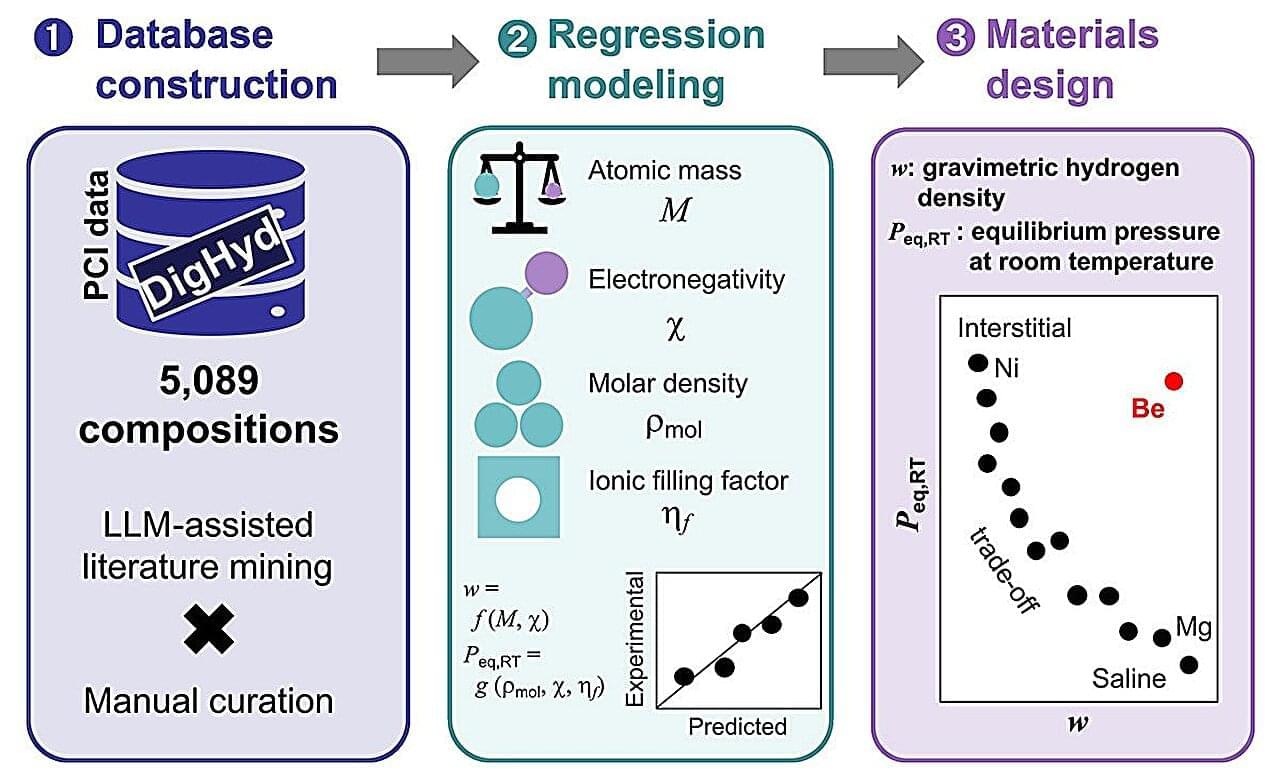Hydrogen fuels represent a clean energy option, but a major hurdle in making its use more mainstream is efficient storage. Hydrogen storage requires either extremely high-pressure tanks or extremely cold temperatures, which means that storage alone consumes a lot of energy. This is why metal hydrides, which can store hydrogen more efficiently, are such a promising option.
To help accurately predict performance metrics of hydrogen storage materials, researchers at Tohoku University used a newly established data infrastructure: the Digital Hydrogen Platform (DigHyd). DigHyd integrates more than 5,000 meticulously curated experimental records from the literature, supported by an AI language model. The work is published in the journal Chemical Science.
Leveraging this extensive database, researchers systematically explored physically interpretable models and found that fundamental atomic features— atomic mass, electronegativity, molar density, and ionic filling factor—emerge as key descriptors. Other researchers can use this as a tool for guiding their materials design process, without having to go through a lengthy trial-and-error process in the lab to search for potential candidates.
